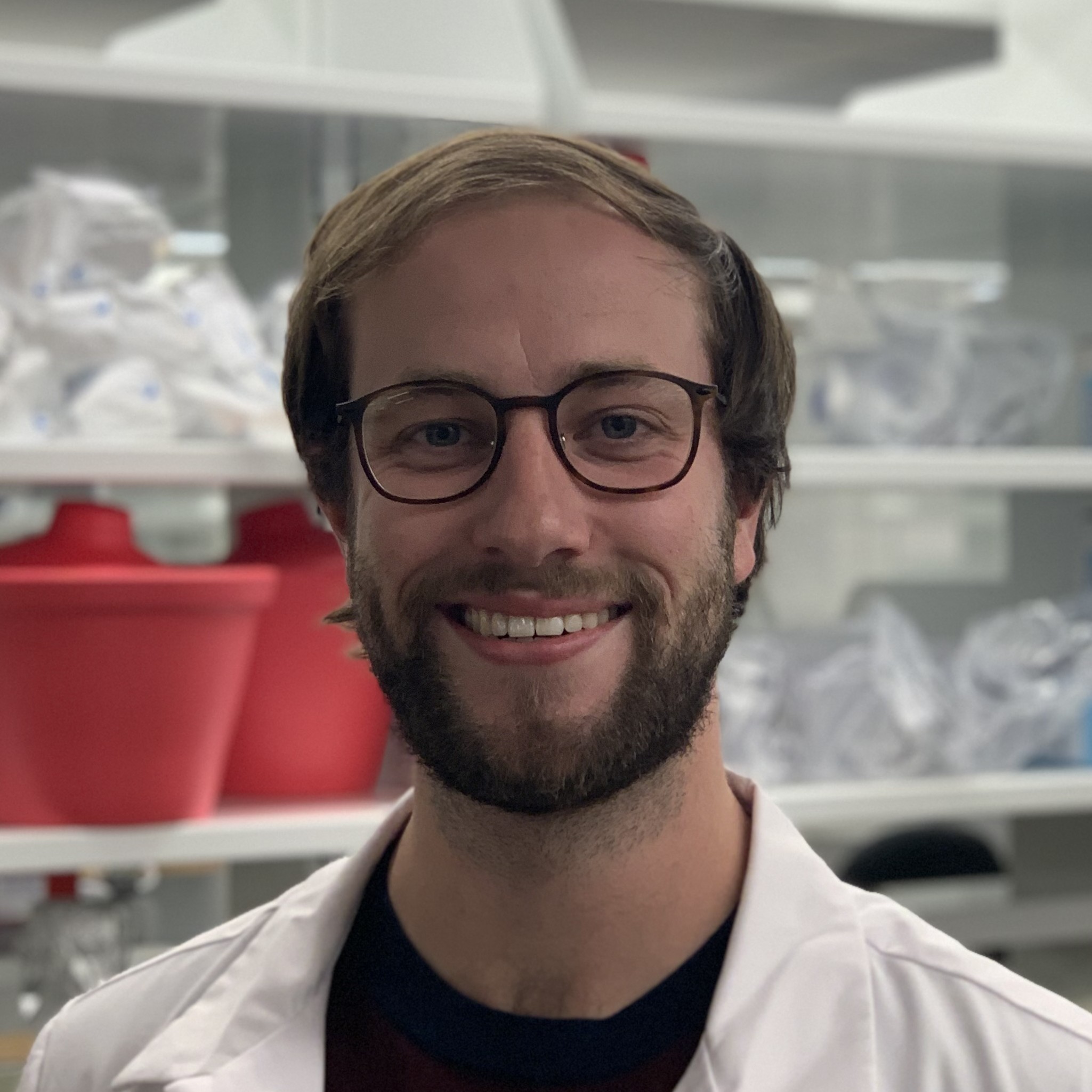Introduction – Chad Moles

The second in a series of Questions and Answers with the founders of Humane Genomics.
Q: Tell me a bit about yourself.
I’m a big science nerd. I’ve always been interested in the intersection of science and technology, and how it can advance humanity and healthcare. I also have a soft spot for animals, and have a dog, four cats, and 18 fish.
Q: Why did you decide to become a founder of Humane Genomics?
There are several reasons why I decided to become a founder of Humane Genomics. First and foremost, I’m personally motivated by the experiences of friends and family members who have struggled with cancer.
While studying the history and progress of synthetic virology in graduate school, I realized that synthetic viruses had been developed as vaccines, gene therapies, viral vectors for research, to name a few. However, I realized that scientists had not explored or pursued the synthesis of oncolytic viruses as cancer therapies. This observation gave birth to my research, and what I perceived to be an opportunity for innovative approaches that could better human health through translational research.
Finally, I discovered how to make it happen. Different institutions and organizations have their own roles and purposes. Universities, academic organizations, and medical centers have conducted basic science research for decades, generating a wealth of knowledge, but life science/biotech startups, pharma companies, and industry are the ones who actually move discoveries from the bench to the bedside. Ultimately, I decided to join as a founder of Humane Genomics to advance the fields of synthetic biology and virology with the hope and goal of improving human health and impacting lives.
Q: Why is your background a great fit?
I earned a B.S. in Public Health from Tulane University, followed by a fellowship in regenerative medicine at Baylor College of Medicine. I helped develop a human organoid drug screening assay, computational scar assessment tool, and a biodegradable hydrogel that improves wound healing. Afterwards, I pursued a M.A. in Biotechnology from Columbia University. During my graduate studies, I joined the laboratory of Dr. Jef Boeke, and discovered the world of synthetic biology. I provided bioinformatics support for the Synthetic Yeast Genome Project (Sc2.0), and completed an internship with Neochromosome, a biotech startup focused on the design, build, and optimization of synthetic chromosomes for genome engineering. I also explored other interests; I volunteered at the Technology Transfer Office on a funding program to help advance scientific discoveries to the clinic, and I built the foundation for a synthetic virology startup at the New York Genome Center. I completed my thesis on synthetic genome engineering for developing next-generation vaccines and therapeutics and graduated, which is when I met Andrew and decided to pursue our shared vision of synthesizing viruses, programming biology, and hacking cancer together.
Q: What is your role?
As the Chief Science Officer, I lead and manage all the scientific, technological, and research operations at Humane Genomics. I work with Andrew to forecast the future directions of synthetic virology and develop the scientific vision and strategy for the company. To achieve these goals, I develop new methods and approaches to expand our research capabilities, and explore cutting-edge technologies and how we might implement them in our design-build-test pipeline. Meanwhile, I work closely with Pete on communications, intellectual property, and business development efforts.
Q: What are you working on?
Currently, I’m working on establishing our design-build-test platform, and expanding our synthetic virology pipeline. Pete developed our own virus design software, and now I’m generating our own library of genetic parts and modules. Recently, we managed to condense genome assembly and boot up to less than a week, so I’m focused on fine tuning and optimization. Finally, I’m developing high-throughput screening assays to expand our analysis capabilities and complete the cycle.
Q: What are you most excited about?
Right now, I’m excited to begin mouse studies and demonstrate the safety and efficacy of our therapies. In the short-term, I’m looking forward to bringing our cancer therapeutics to the veterinary clinic, and offer dogs the chance to spend more time with their owners and family. Overall, I’m excited to push the boundaries of synthetic virology and see our company move the needle in oncology and healthcare. We will offer personalized therapies on demand for a reasonable cost.